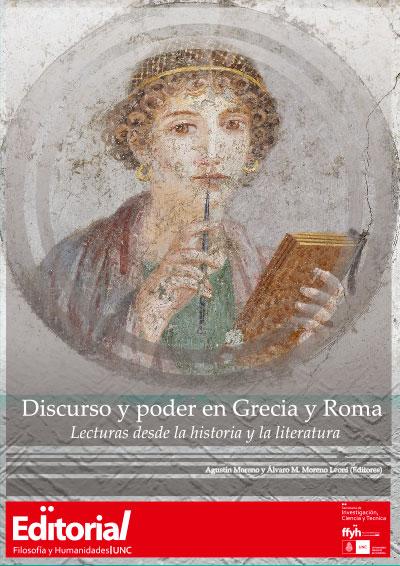Discurso y poder en Grecia y Roma: lecturas desde la historia y la literatura
Palabras clave:
Grecia, Roma, discurso político, poder (ciencia política), democracia, retórica, filosofía política, literatura clásica, identidad cultural, ideología política, historiografía clásicaSinopsis
La historia del Workshop Nacional de Historia Antigua y Estudios Clásicos se remonta al 2012, un evento enmarcado en el Programa Interdisciplinario de Estudios Clásicos (PIEC) del Centro de Investigaciones y Estudios sobre Cultura y Sociedad (CIECS, CONICET-UNC), que pudo sostenerse en el tiempo gracias al apoyo económico que en sus distintas ediciones recibió de la Secretaría de Investigación, Ciencia y Técnica de la Universidad Nacional de Córdoba y al aval institucional de la Facultad de Filosofía y Humanidades.
Los objetivos del Workshop son ofrecer una instancia de diálogo en torno a un tema concreto, que permita intercambiar preguntas e hipótesis de trabajo haciendo hincapié en la discusión de los presupuestos teóricos metodológicos de las investigaciones en progreso de los participantes invitados. Al mismo tiempo, se busca crear y fortalecer lazos con otros grupos de investigación del país y del exterior y, asimismo, ofrecer un ámbito para que el público interesado en el mundo antiguo pueda tener la posibilidad de acceder al conocimiento científico no sólo como oyente pasivo, sino, incluso, como participante activo durante las instancias de diálogo abiertas tras cada exposición.
Discurso y poder en Grecia y Roma: lecturas desde la historia y la literatura, es el primer número de la colección Interpretatio, Cuadernos del PIEC, que reúne trabajos de cinco especialistas del campo de los estudios clásicos grecorromanos discutidos en el III Workshop Nacional de Historia Antigua y Estudios Clásicos “Discurso y Poder”. En el primer capítulo, Diego Paiaro se centra en las construcciones discursivas sobre la “liberación” de Atenas en los enfrentamientos políticos durante la instauración de la democracia. A continuación, Pablo Llanos analiza la relación entre Jasón y Heracles en un nivel metapoético en Argonáuticas, con el fin de demostrar que Apolonio de Rodas disemina a lo largo de la obra unas argonáuticas de Heracles que repiten y compiten con las de la historia principal. Guillermina Bogdan, por su parte, estudia la acción ritual de los pueblos nombrados en la Eneida de Virgilio, entendiendo la ritualidad como constructora de identidad. Ivana Chialva aborda la cuestión del discurso y poder en tres obras de Luciano de Samosata para identificar, en el vocabulario sobre los géneros del encomio, la adulación y la historia, un proyecto teórico-poético del autor sobre su propia escritura. Finalmente, Lorena Esteller se detiene en la consideración de los omina imperii, los presagios de poder imperial, como recursos de L. Septimio Severo en su construcción de legitimidad. Esperamos que estas contribuciones, que compartimos a continuación con el lector, sirvan para estimular futuras investigaciones y para profundizar en los problemas y líneas de estudio aquí planteados.
Capítulos
-
Presentación
-
Discursos y poder (del dêmos). Las construcciones discursivas sobre la “liberación” de Atenas y los enfrentamientos políticos durante la democracia
-
Una lectura metapoética de la oposición entre Jasón y Heracles en Argonáuticas de Apolonio de Rodas
-
La ritualidad como constructora identitaria en Eneida de Virgilio
-
Discurso (escrito) y poderel elogio y la responsabilidad del syngrafeús según Luciano
-
Los omina imperii y Lucio Septimio Severo. Presagios de poder y legitimación de la dinastía severa

Descargas
Publicado
Licencia

Esta obra está bajo una licencia internacional Creative Commons Atribución-NoComercial-CompartirIgual 4.0.



























